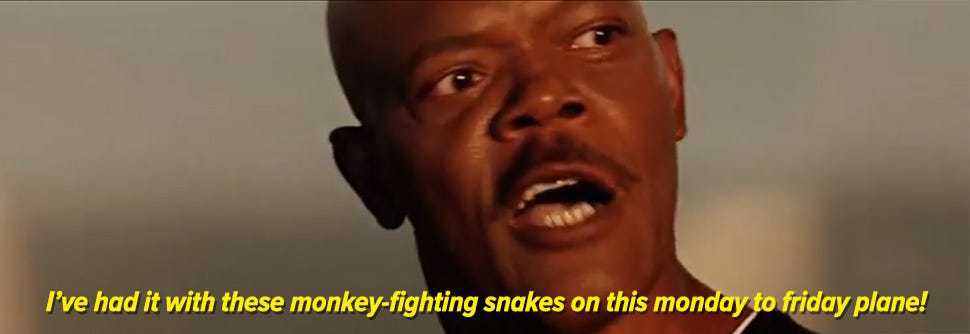This week’s rebroadcast looks at a pair of posts discussing dialogue modifiers, and showing how to clarify on the page the way to perform a moment.
I was just wondering how to indicate that a character is stressing a certain word in the dialog. I’ve thought about using capitalization but I’m not sure that’s the proper way, as I’ve also seen quotation marks used to similar effect. If you had any advice on which method you use, that would be more appreciated.
— Mike
Underline. But remember, in most cases, you needn’t and shouldn’t give a specific line reading for any piece of dialogue. If a scene is working, readers (and actors) will naturally fall into the right tone.
But if you have a line that only makes sense one way — and it’s not the first way someone would read it — you have a couple of choices:
Set it up in stage direction:
Through clenched teeth --
MARGARET
I’d be delighted.Use a parenthetical:
CORBIN
(condescending)
I’m sure you’ll improve.Underline the word or words that need to be stressed:1
XANDER
I’m not not saying he wasn’t a Bugwath demon but if he was — or wasn’t, I confused myself there — either way he was surly. And oddly cat-phobic. Now can we get back to the part where the whole world goes boom at midnight?You’ll occasionally see italics in dialogue (often for foreign languages). A few screenwriters use boldface or uppercase in dialogue. I’ve never seen the need.
Quotation marks should be reserved for moments that a character might make “air quotes” around something they’re saying. The misuse of quotation marks is a scourge of modern English.
You often hear you shouldn’t use parentheticals for things other than acting directions (“surprised”, “relieved”, etc… And even use those sparingly).
What’s the accepted tolerance for parentheticals for actions such as:
MINDY
(raising her glass)
I wish to say a few words...or
JÜRGEN
Wait!
(signaling for the soldiers to stop)
She has the detonator!Is this a big no-no? A small no-no? Can you get away with it once or twice in a script, if you want to shave off a few lines from a page? Or does it reek of the amateur screenwriter?
— Liam
I’ve used parentheticals in situations similar to both your examples, though I’m more likely to break those lines out as scene description:
Raising her glass --
MINDY
I wish to say a few words...But as I’ve written about before, there are other situations in which parentheticals make sense, and using them smartly can both trim pages and improve the read. It’s all to your taste and style.
You’ll find A-list screenwriters who write five-line parentheticals and others who eschew them altogether. (Anything you do in a parenthetical could theoretically be accomplished in scene description.)
Read a lot of screenplays and find a style you like. For example, you may find yourself emulating writers who use parentheticals for as-if situations…
TARA
(“damn it!”)
Puppetfuzz!…or to establish the pacing on a joke. Try it and see what works.
Like CUT TO:’s and sluglines, the use of parentheticals comes down to personal preference. As long as you are consistent and engaging, readers are unlikely to object.
Are you enjoying this newsletter?
📧 Forward it to a friend and suggest they check it out.
🔗 Share a link to this post on social media.
🗣 Have ideas for future topics (or just want to say hello)? Reach out to Chris via email at inneresting@johnaugust.com, Mastodon @ccsont@mastodon.art, or Threads @ccsont@threads.net
Bolded for emphasis here because the Substack editor doesn’t include the option to underline text…




